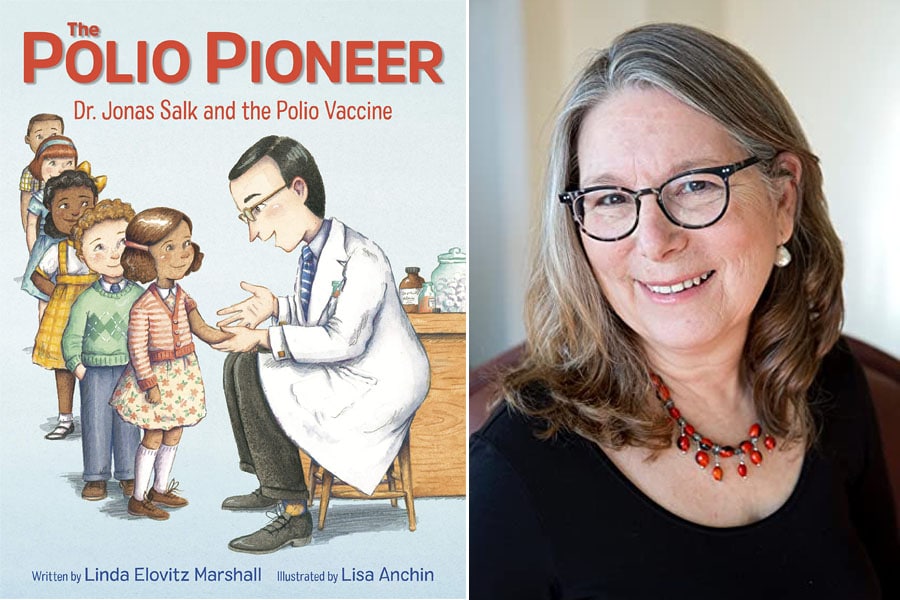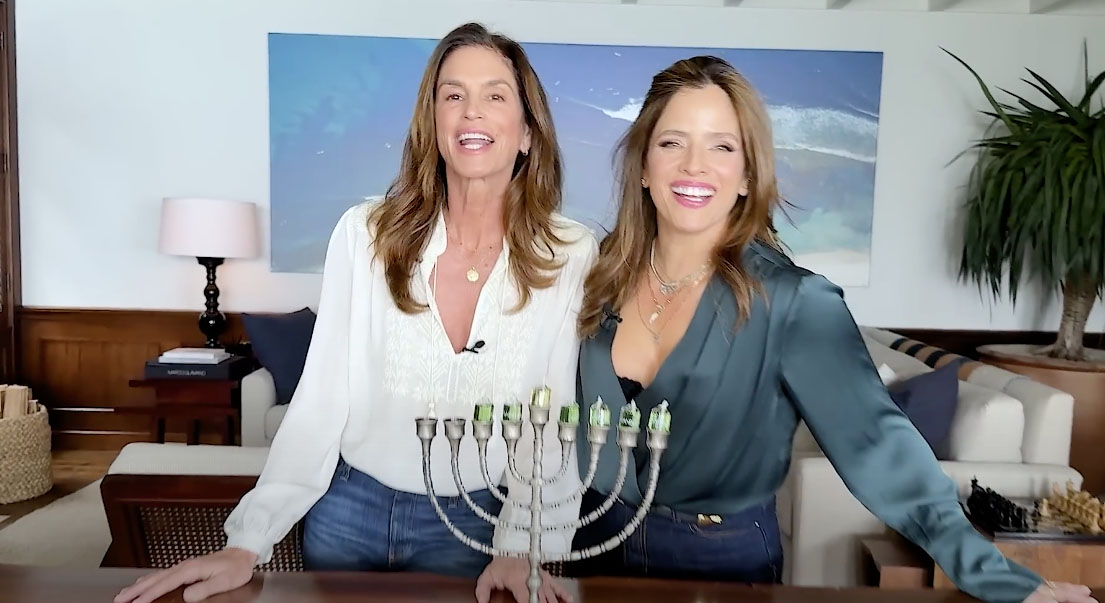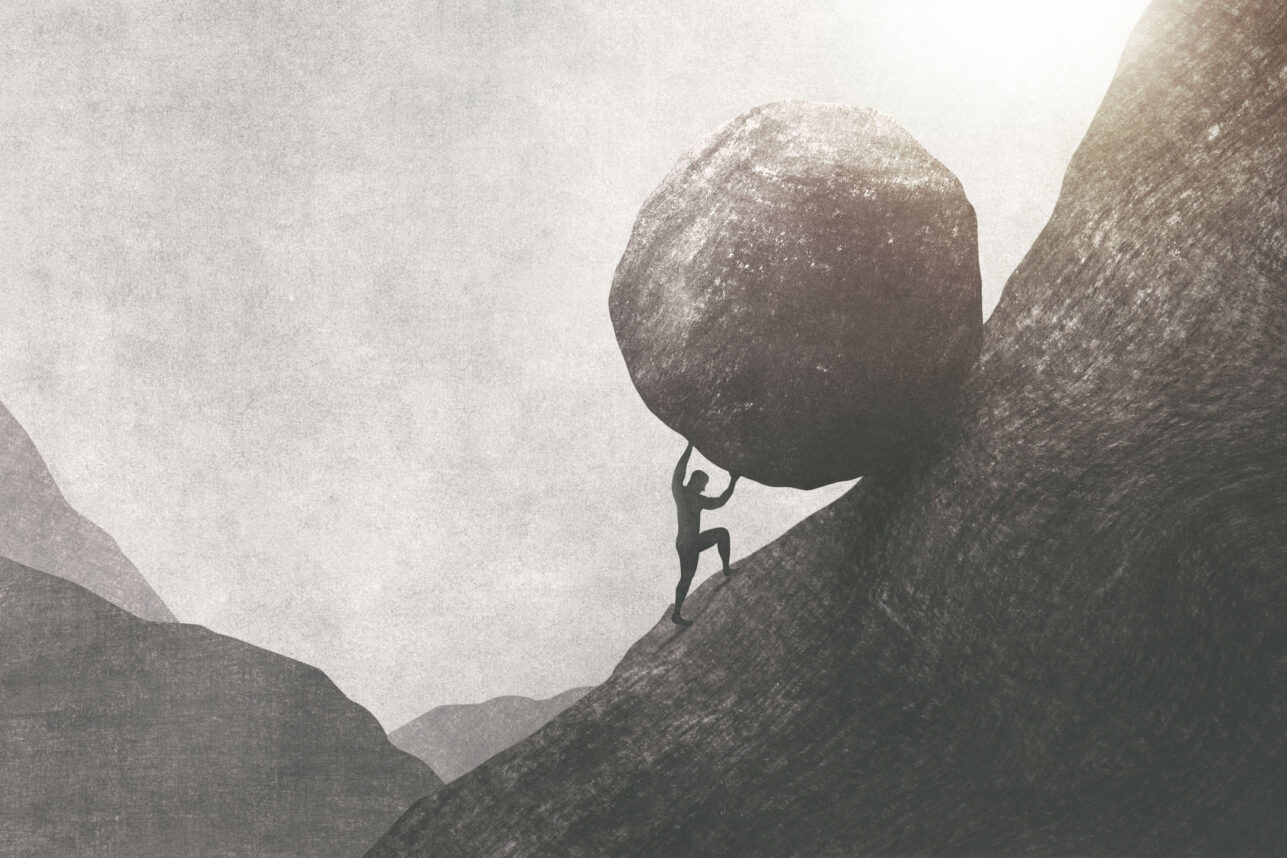
When Linda Elovitz Marshall was growing up in the 1950s, she and her friends couldn’t go to the movies, swimming pools, ponds or lakes during the summer out of fear of catching polio. One year, the outbreak was so bad that her family left Boston, where the disease was spreading rapidly, and stayed in Hartford with her grandparents.
Thankfully, Marshall never got polio, and Dr. Jonas Salk’s polio vaccine was introduced in 1955. Finally, Marshall and her friends could gather once again and things could go back to normal. Salk became her hero, which is why she decided to write a new children’s book, “The Polio Pioneer: Dr. Jonas Salk and the Polio Vaccine,” about his life.
“This is a book that I’m really proud of,” said Marshall in an interview with the Journal. “It’s just so important.”
The book starts off with little Jonas Salk watching soldiers coming home from World War II. While everyone else is cheering and happy, he’s upset because he sees injured soldiers who are unable to walk. “Jonas Salk was a kid who saw things differently,” Marshall writes.
The book also details how Salk’s family fled Russia and Lithuania to escape religious persecution, how he loved chemistry and how he invented the world’s first flu vaccine in 1938 with Dr. Thomas Francis. Then, Salk began working on the polio vaccine. To test it out, he brought in almost two million children called “Polio Pioneers,” and on April 12, 1955, he announced that it had worked.
The book ends with an uplifting note for its readers: “Jonas Salk was a kid who saw things differently, a kid who wanted to help make the world a better place… Ever meet a kid like that? Could he or she be YOU?”
Marshall said she thought about writing the book before COVID-19 came out. “We were living this carefree life where we didn’t need to worry about these things anymore, but then bingo, it’s not so anymore. The impetus was to share that history I remembered quite well, but for anybody younger than me, it was ancient. With my generation dying out, nobody is going to know about polio firsthand anymore.”
Marshall had already written many children’s books, some of which are about Jewish topics like Passover, Purim, shalom bayit, Shabbat and Anne Frank. They include titles like “Talia and the Yum! Kippur” and “Shh… Shh… Shabbat.” Since Marshall had this background writing for children, she knew she wanted to keep the book light. “I didn’t want to scare any 4-year-olds,” she said. “The pictures are retro, which shows this was 50 years ago, and the story had a happy ending. What could be better during COVID times than reading about something that has a happy ending?”
To research for “The Polio Pioneer,” Marshall visited the Salk Institute for Biological Studies in La Jolla, read biographies on the doctor and connected with his son, Dr. Peter Salk, who is president of the Jonas Salk Legacy Foundation. “He reviewed my manuscript and was wonderfully helpful,” she said. “I had to be really careful about every word, especially the ones about the scientific processes and the virus and vaccines.”
Even though polio was devastating — just like COVID-19 — there was a light at the end of it all because of Dr. Salk. With her book, Marshall said she wants to portray a sense of hope to kids that the pandemic will go away just like polio did when she was their age.
“I hope this book brings good things to people,” she said. “I hope it helps parents sit together and cuddle with their children and talk about what’s going on now.”
Kylie Ora Lobell is a writer for the Jewish Journal of Los Angeles, The Forward, Tablet Magazine, Aish, and Chabad.org and the author of the first children’s book for the children of Jewish converts, “Jewish Just Like You.”






















 More news and opinions than at a Shabbat dinner, right in your inbox.
More news and opinions than at a Shabbat dinner, right in your inbox.